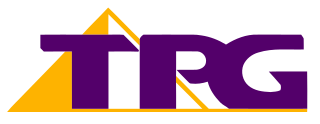
Communications in Gibraltar comprise a wide range of telephony systems, Internet access, broadcasting and satellite control. There is also printed and online media. Regulation of telecommunications and broadcasting are the responsibility of the Gibraltar Regulatory Authority (GRA), established by means of the Gibraltar Regulatory Authority Act in 2000.
The Universal Mobile Telecommunications System (UMTS) is a third generation mobile cellular system for networks based on the GSM standard. Developed and maintained by the 3GPP, UMTS is a component of the International Telecommunication Union IMT-2000 standard set and compares with the CDMA2000 standard set for networks based on the competing cdmaOne technology. UMTS uses wideband code-division multiple access (W-CDMA) radio access technology to offer greater spectral efficiency and bandwidth to mobile network operators.

The telecom sector in Bangladesh is rapidly emerging. Bangladesh Telecommunication Regulatory Commission (BTRC) is the regulatory authority for this sector, overseeing licensing, policy, etc.

A SIMcard is an integrated circuit (IC) intended to securely store an international mobile subscriber identity (IMSI) number and its related key, which are used to identify and authenticate subscribers on mobile telephone devices. Technically the actual physical card is known as a universal integrated circuit card (UICC); this smart card is usually made of PVC with embedded contacts and semiconductors, with the SIM as its primary component. In practice the term "SIM card" is still used to refer to the entire unit and not simply the IC.
A SIM lock, simlock, network lock, carrier lock or (master) subsidy lock is a technical restriction built into GSM and CDMA mobile phones by mobile phone manufacturers for use by service providers to restrict the use of these phones to specific countries and/or networks. This is in contrast to a phone that does not impose any SIM restrictions.

Emirates Telecommunications Group Company PJSC, doing business as etisalat and, is a UAE state-owned telecommunications company. It is the 18th largest mobile network operator in the world by number of subscribers.

TPG is an Australian internet service provider that specialises in consumer and business internet services as well as mobile telephone services. As of August 2015, TPG is the second largest internet service provider in Australia and is the largest mobile virtual network operator. As such, it has over 671,000 ADSL2+ subscribers, 358,000 landline subscribers and 360,000 mobile subscribers, and owns the second largest ADSL2+ network in Australia, consisting of 391 ADSL2+ DSLAMs. It also operates in New Zealand.

M1 Limited is a Singaporean telecommunications company and one of the major telcos operating in the country. M1 was founded in 1994 and traded on the Singapore Exchange from 2002 to 2019. M1 is a subsidiary of the Keppel Ltd.

Q-Telecom was the fourth mobile telephony provider in Greece. It began operation in June 2002. As of 2008, it called itself "Q" and called its services "MyQ." The company provided GSM phone service, supported by LMDS and backbone networks, and called itself the only complete and integrated telecom provider in Greece. In May 2007, it merged with WIND Hellas, which was known at the time as TIM Hellas.
The telecommunications industry in China is dominated by three state-run businesses: China Telecom, China Unicom and China Mobile. The three companies were formed by restructuring launched in May 2008, directed by the Ministry of Information Industry (MII), National Development and Reform Commission (NDRC) and the Minister of Finance. Since then, all three companies gained nationwide fixed-line and cellular mobile telecom licenses in China. In 2019, all three telecoms were issued 5G national licenses.
Truphone is a GSMA-accredited global mobile network that operates its service internationally. The company is headquartered in London and has offices in ten other countries, being spread across four continents.

Transatel is a telecom corporation headquartered in Paris, La Défense, and led by the founders Jacques Bonifay (CEO) and Bertrand Salomon. NTT Communications took a majority stake in the company on 28 February 2019, transferred to NTT Ltd. on 1 July 2019.

Melita Limited, formerly Melita Cable, is a Maltese telecommunications company established in 1992. It is a quadruple play provider that provides cable television, mobile telephone, broadband Internet, and fixed-line telephone services.
Sony Semiconductor Israel Ltd., formerly known as Altair Semiconductor, is an Israeli developer of high performance single-mode Long Term Evolution (LTE) chipsets. The company's product portfolio includes baseband processors, RF transceivers and a range of reference hardware products. Founded in 2005, Altair employs 190 employees in its Hod Hasharon, Israel headquarters and R&D center, and has regional offices in the United States, Japan, China, India, Finland, and France. Altair Semiconductor was the first chipset vendor to receive certification from Verizon Wireless to run on its 4G LTE network. Altair has also powered several devices launched on Verizon's network including the Ellipsis 7 tablet and HP Chromebook 11.6"LTE. In January 2016, it was announced that Sony was acquiring Altair for $212 Million. Altair was renamed Sony Semiconductor Israel on March 29, 2020.
3G mobile telephony was relatively slow to be adopted globally. In some instances, 3G networks do not use the same radio frequencies as 2G so mobile operators must build entirely new networks and license entirely new frequencies, especially so to achieve high data transmission rates. Other delays were due to the expenses of upgrading transmission hardware, especially for UMTS, whose deployment required the replacement of most broadcast towers. Due to these issues and difficulties with deployment, many carriers delayed acquisition of these updated capabilities.

KORE Wireless Group specializes in Internet of Things (IoT) systems. It is headquartered in Atlanta, Georgia. In March 2021, KORE and Cerberus Telecom Acquisition Corp. announced a definitive merger agreement. Upon completion of the transaction, the combined company, which has a pro forma valuation of $1.04 billion, expects to be listed on the New York Stock Exchange under the ticker symbol “KORE”.

ASPIDER is the group name for a series of companies that are mostly based in Europe. The company name has evolved over the years as a result of acquisitions, mergers and restructuring. The company is an MVNE, providing mobile services to companies that want to control their own network. Clients include enterprises, manufacturers, integrators, and the mobile operators themselves.
Cellnex Telecom is a Spanish wireless telecommunications infrastructure and services company with up to 135,000 sites -including forecast roll-outs up to 2030- throughout Europe. Its activity is divided into four main areas: services for telecommunications infrastructures; audiovisual broadcasting networks; security and emergency network services; and solutions for the intelligent management of urban infrastructures and services.

Workz is a technology company specialized in eSIM and cloud-based services. The company is headquartered in Dubai, UAE and is a regional supplier in the Middle East and Africa.












